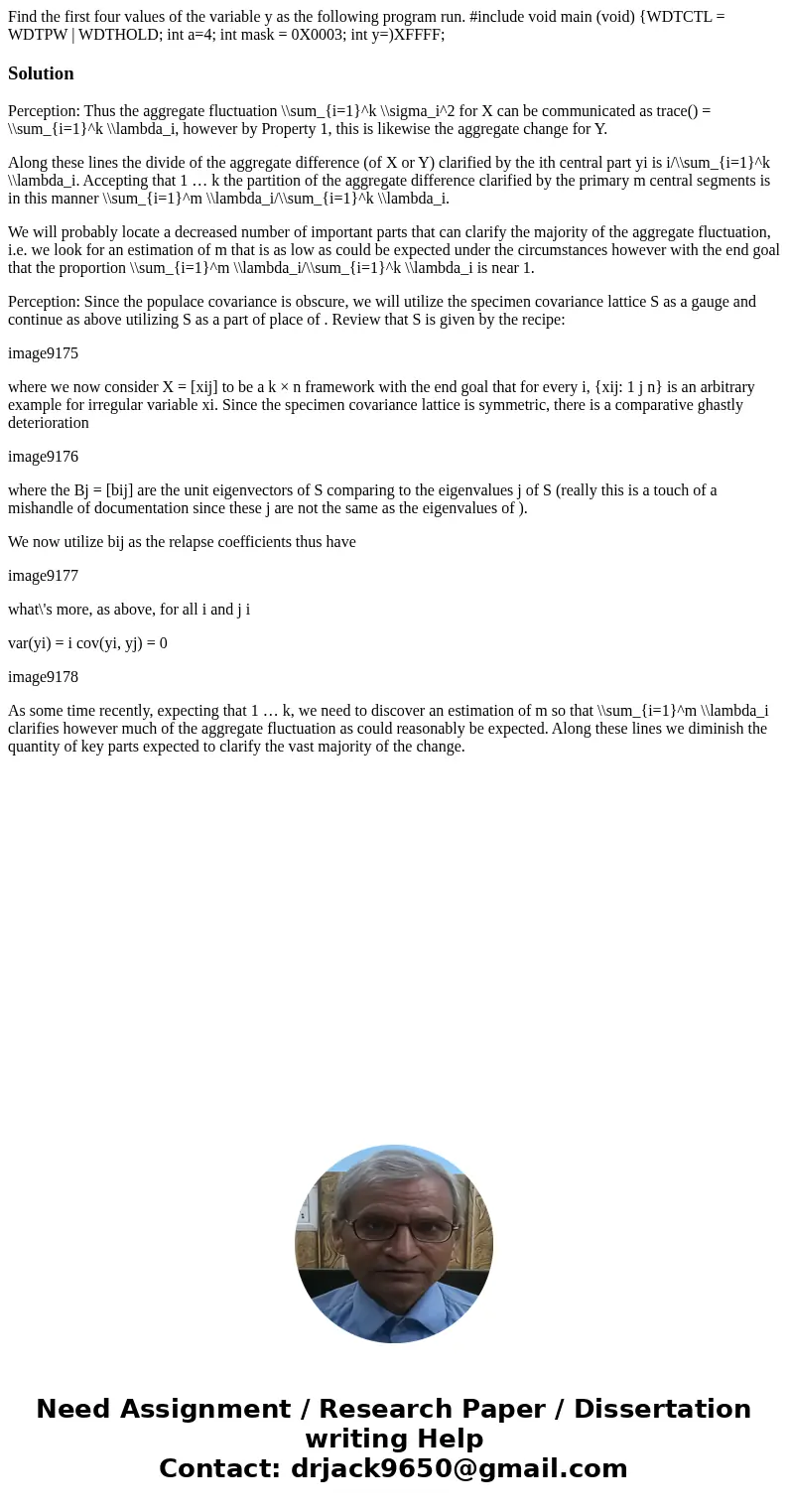Find the first four values of the variable y as the followin
Solution
Perception: Thus the aggregate fluctuation \\sum_{i=1}^k \\sigma_i^2 for X can be communicated as trace() = \\sum_{i=1}^k \\lambda_i, however by Property 1, this is likewise the aggregate change for Y.
Along these lines the divide of the aggregate difference (of X or Y) clarified by the ith central part yi is i/\\sum_{i=1}^k \\lambda_i. Accepting that 1 … k the partition of the aggregate difference clarified by the primary m central segments is in this manner \\sum_{i=1}^m \\lambda_i/\\sum_{i=1}^k \\lambda_i.
We will probably locate a decreased number of important parts that can clarify the majority of the aggregate fluctuation, i.e. we look for an estimation of m that is as low as could be expected under the circumstances however with the end goal that the proportion \\sum_{i=1}^m \\lambda_i/\\sum_{i=1}^k \\lambda_i is near 1.
Perception: Since the populace covariance is obscure, we will utilize the specimen covariance lattice S as a gauge and continue as above utilizing S as a part of place of . Review that S is given by the recipe:
image9175
where we now consider X = [xij] to be a k × n framework with the end goal that for every i, {xij: 1 j n} is an arbitrary example for irregular variable xi. Since the specimen covariance lattice is symmetric, there is a comparative ghastly deterioration
image9176
where the Bj = [bij] are the unit eigenvectors of S comparing to the eigenvalues j of S (really this is a touch of a mishandle of documentation since these j are not the same as the eigenvalues of ).
We now utilize bij as the relapse coefficients thus have
image9177
what\'s more, as above, for all i and j i
var(yi) = i cov(yi, yj) = 0
image9178
As some time recently, expecting that 1 … k, we need to discover an estimation of m so that \\sum_{i=1}^m \\lambda_i clarifies however much of the aggregate fluctuation as could reasonably be expected. Along these lines we diminish the quantity of key parts expected to clarify the vast majority of the change.

 Homework Sourse
Homework Sourse